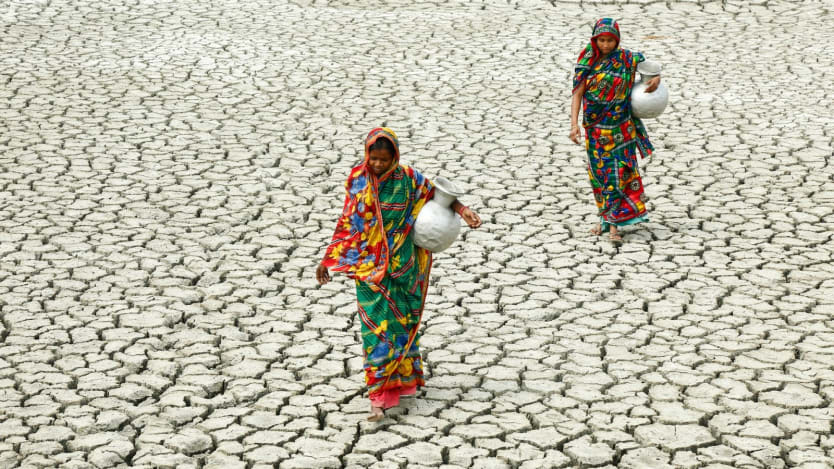Poor data on groundwater jeopardizes climate resilience, report says

ALICANTE, Spain — A lack of data on groundwater is impeding water management and could jeopardize climate resilience efforts in some places, according to recent research by WaterAid and the HSBC Water Programme.
Groundwater is found underground in gaps between soil, sand, and rock. Over 2.5 million people are thought to depend on groundwater — which has a higher tolerance to droughts than other water sources — for drinking.
The report looked at groundwater security and sustainability in Bangladesh, Ghana, India, Nepal, and Nigeria, where collectively more than 160 million people lack access to clean water close to home. It found that groundwater data tends to be limited — including on issues such as overextraction, pollution, and contamination — leaving little evidence for decision-makers to consider for its management.
“There’s a general lack of information and data … which makes it very hard to manage the resource sustainably,” said Vincent Casey, senior water, sanitation, and hygiene manager for waste at WaterAid.
He added: “Without groundwater, [people’s] water supply access will be very badly affected. They won’t be water secure, and therefore [they will be] unable to deal with the challenges climate change brings.”
There are also health implications. “Where groundwater gets contaminated, severe cases of waterborne diseases follow. Where groundwater is absent, households and agriculture suffer,” said Shrirupa Sengupta, associate director at health nonprofit Swasti.
Having access to better data could ensure the microbial safety of groundwater to reduce health burdens, reduce out-of-pocket expenditure, and ensure people are not pushed further into poverty, she said.
While some data is available from multiple sources, the lack of collation or centralization presents a problem, Casey said. According to the report, records in some places in Nepal and Nigeria are often on paper or in incompatible digital formats, making them difficult to access. In Ghana, Nigeria, and Bangladesh, drillers are supposed to provide information on boreholes or tube wells to the relevant groundwater agency, but this does not always happen.
“There’s a general lack of information and data … which makes it very hard to manage the resource sustainably.”
— Vincent Casey, senior water, sanitation, and hygiene manager for waste, WaterAidThe report recommends improved collaboration between government agencies and other institutions involved with groundwater data collection, alongside the development of more accessible databases and increased awareness of existing data.
“Centralizing data in some sort of database for decision-making purposes is a general first step,” Casey said, adding that the next step is familiarizing policymakers with the importance of groundwater in underpinning climate resilience.
“The climate clock is ticking. And if efforts are not made to better understand, value, and protect this vital resource, making it a central feature of climate change adaptation strategies, then we face a very bleak future,” he said.
Update, Oct. 21, 2020: This article has been updated to clarify that 2.5 billion people are thought to solely depend on groundwater.
Search for articles
Most Read
- 1
- 2
- 3
- 4
- 5








